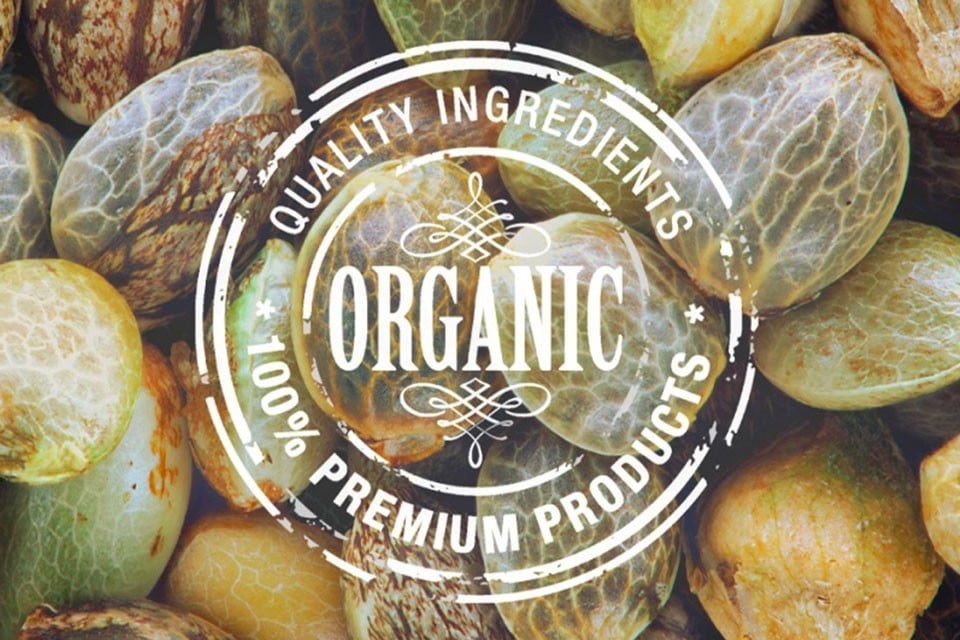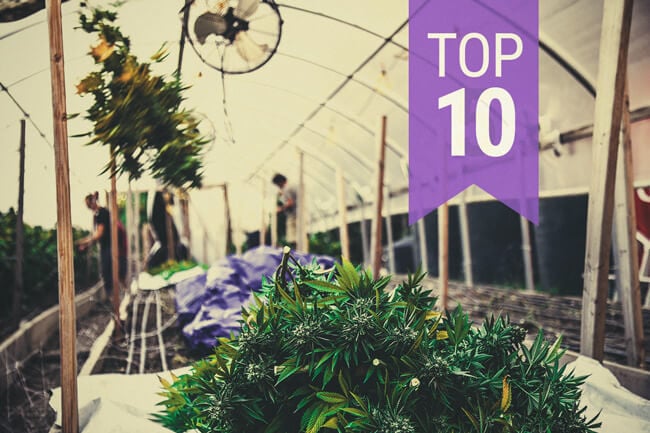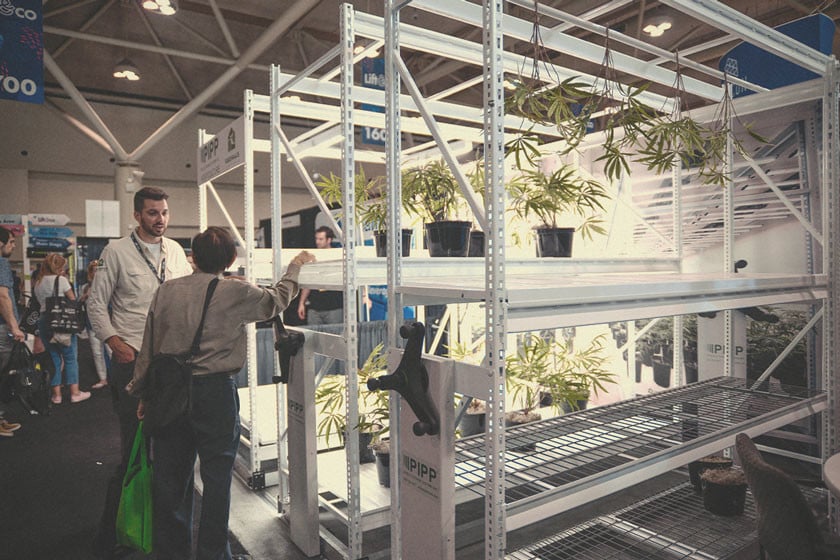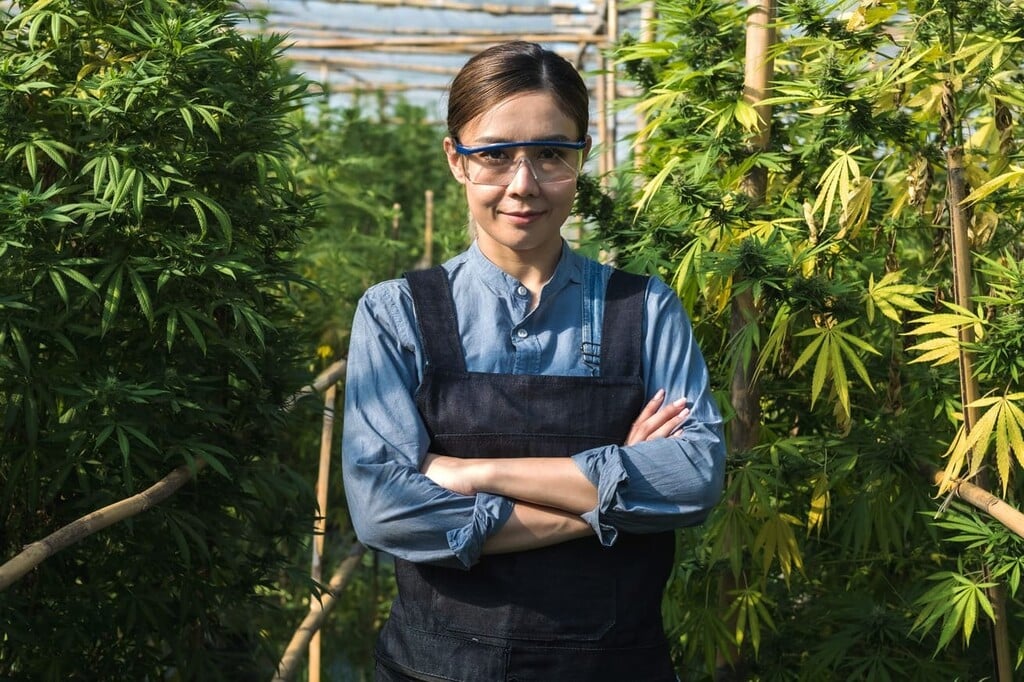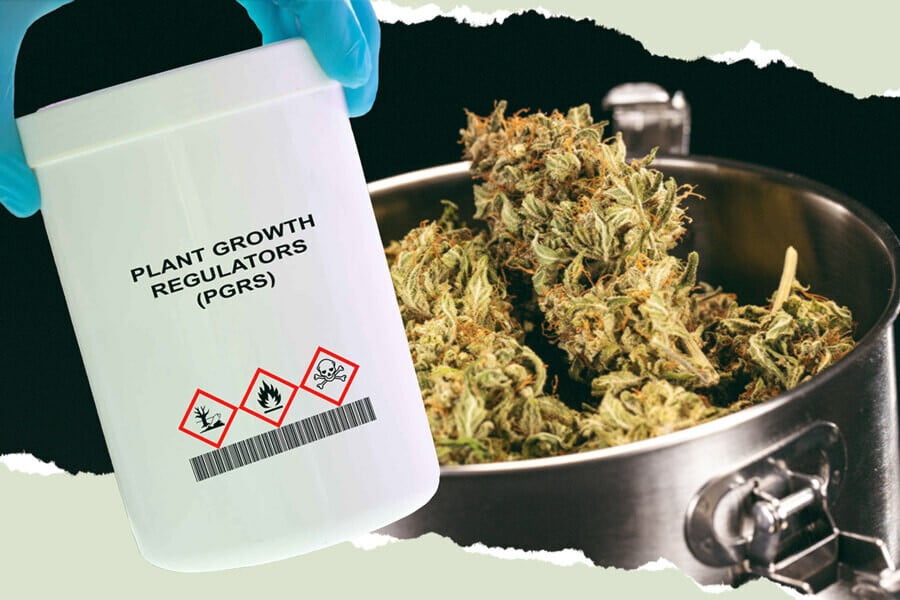.
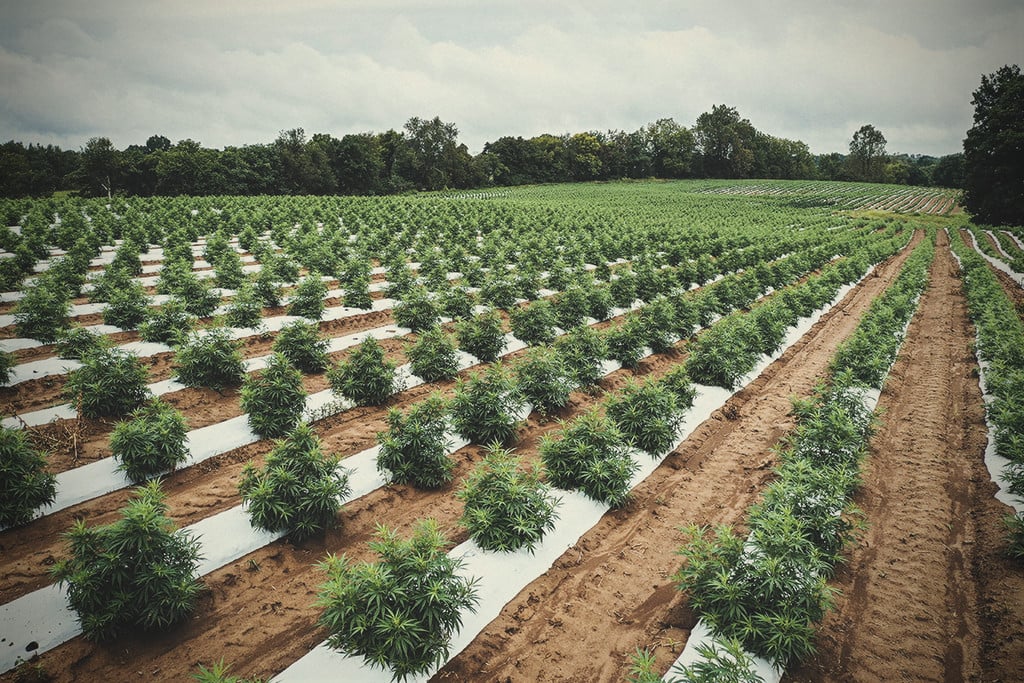
Can Cannabis Support Regenerative Agriculture?
The cannabis industry is going big, and so is its pollution potential. Just like any other crop, large-scale cannabis cultivation has an impact on the environment. Regenerative agriculture might be the natural answer to the need for more sustainable cannabis products. Read on to learn how your cannabis grow can be regenerative too.
Contents:
- How the cannabis industry impacts the environment
- What is regenerative agriculture?
- Dry farming: an example of regenerative agriculture in action
- Dry weed farming — what does the future hold?
- What are the benefits of regenerative agriculture for cannabis growers and consumers?
- How to start a regenerative cannabis garden
- Can regenerative cannabis farming reverse climate change?
Together with fossil fuels, agriculture and industrial farming are the greatest cause of climate change. The impact of agriculture on the environment will be a hot topic for years, and since cannabis processing is growing fast and going global, this industry must take its share of the responsibility.
How The Cannabis Industry Impacts The Environment
Researchers analised the impact of large-scale cannabis growing in northern California, finding soils and ecosystems in the region to be seriously damaged by extensive cultivation. Cannabis farming requires a generous amount of water, which can contribute to droughts, while its waste water pouring into soil and rivers is often polluted with some sort of residual chemicals.
Moreover, the volatile compounds that produce cannabis’ aroma can dangerously increase ozone levels surrounding a big plantation. Finally, the carbon footprint from grow room and greenhouse energy usage is a relevant issue too.
Even if it was possible, splitting large cultivations into thousands of home businesses would not solve the problem. What every grower, big or small, should aim for is a localised and customised practice of sustainable agriculture. And further ahead, regenerative agriculture.
What Is Regenerative Agriculture?
Improving biodiversity is at the centre of regenerative agriculture. Local variations on regenerative agricultural practices have been around for centuries. Retrieving and evolving these practices means planning “closed-loop” operations that are able to restore the natural features of air, water, soil, and their ecosystems, plus providing decent yields with each harvest.
Regenerative agriculture goes a step further than sustainable agriculture with its healing effect on the environment, which could also improve crop quality. Easier said than done, of course.
Nevertheless, just to make an example, industrial hemp is, by nature, able to sequester toxic substances from polluted soils and regenerate them into arable land over time. Hemp’s large canopy also prevents the growth of bad weeds, and its stems have hundreds of eco-friendly applications.
Regardless of the crop, regenerative agriculture might mitigate farming impact on the environment. However, whether it’s because it might be economically inefficient or for other reasons, regenerative practices aren't so popular even among organic farmers.
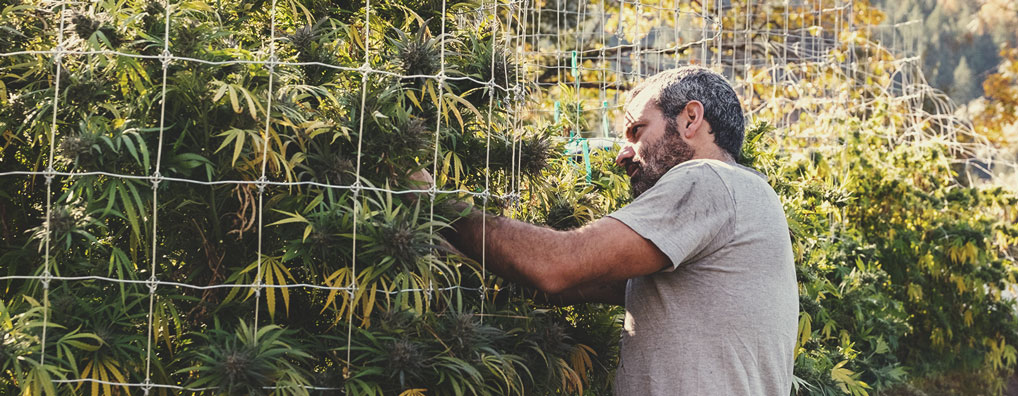
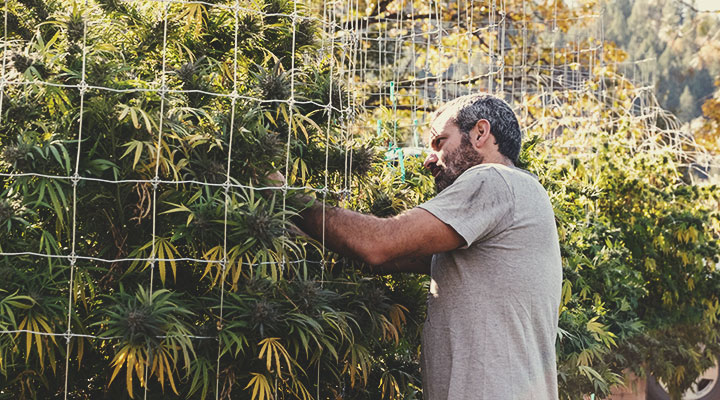
Dry Farming: An Example of Regenerative Agriculture in Action
Dry farming is a technique of raising crops throughout the dry season. This is achieved by using moisture stored in the soil from the previous rainy season.
Dryland farming is not a new fad. It has been used for centuries in parched regions such as parts of Africa, Arabic countries, territories of the Mediterranean, and most recently, in Southern California. It is not a method for "maximising" output, so it largely fell out of favour until the recent focus on regenerative and sustainable agriculture.
The first benefit of dry farming is the capacity to grow crops in dry regions without any additional water. Water and its supply are becoming increasingly precious, and dry farming certainly ticks all the sustainability boxes.
In this practice, the top layers of soil remain dry enough that few weeds grow, which means herbicides are not needed and there is little need for weeding. No additional irrigation, fertiliser, or energy is required, meaning that production costs are low and sustainable.
-
What Crops Can Be Dry Farmed?
Dryland grain crops include wheat, corn, millet, and rye, and dryland fruit and veg crops include grapes, tomatoes, pumpkins, and beans. Dry farming has long been used in the Mediterranean. It is still illegal to irrigate wine grapes during the growing season in wine-producing regions of Spain, Greece, France, and Italy, as it is believed that water will dilute the grape quality. Many of the best wines and olive oils are created from dry-farmed produce.
Today, dry farming is also being used to grow cannabis in certain circumstances. As it’s already quite a hardy specimen, it makes a good candidate for the process.
-
Dry Farming Techniques
Dry farmers select a site with deep soil and good water-holding characteristics, and then use a range of techniques, including:
- Adding lots of aged organic matter twice-yearly, and double digging the soil to loosen and aerate it in autumn.
- Tending to the soil lightly after every rain to prevent crusting.
- Weeding and mulching around plants. This retains moisture, deters weeds, and keeps roots cool.
- Capturing rainfall for extra water supplies.
- "Dust mulching" the soil by hoeing the top 5cm or so to stop moisture from evaporating. This is done after rain or watering.
- Following harvest, leaving the crop remains (stubble mulch) in situ. Stubble mulch stops the soil from drying due to sun and wind. Alternatively, some use green manure.
- "Clean fallow" is a method of storing rainwater. No crop is planted for a year; just stubble mulch or green manure is left. If done on alternate years, farmers can retain up to 70% of rainfall.
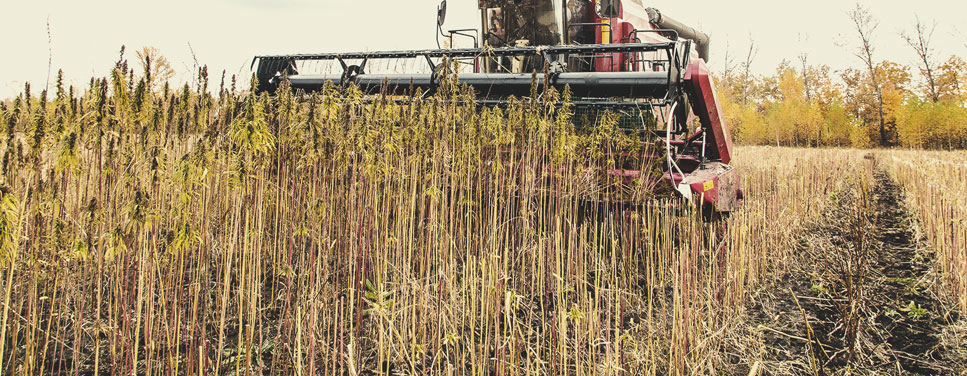
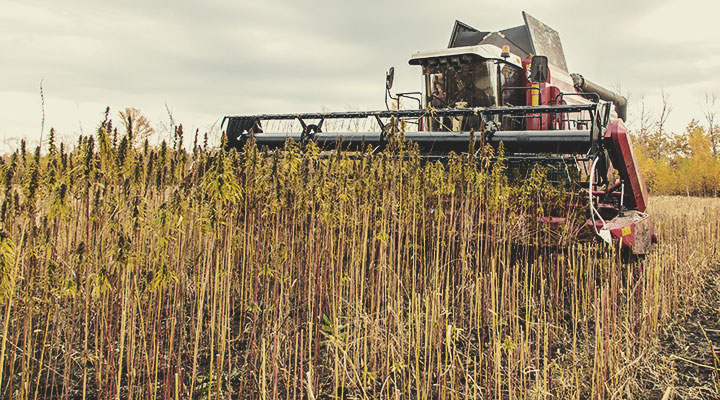
Dry Weed Farming — What Does the Future Hold?
Dry farming cannabis is a practice that is growing in popularity. Still, its success is, of course, down to geology and geography. Some outdoor growers in California's Humboldt County, or "Emerald Triangle", have had success dry farming on their sites located along the Eel River.
One bonus of dry farming cannabis is the lack of excess water in the bud, meaning it dries and cures well. Less dilution of the plant represents a more authentic taste of the genetics. One downside of dry farming cannabis is potentially smaller yields, as with all dry-farmed products. However, we would take quality and sustainability over quantity any day.
What Are The Benefits Of Regenerative Agriculture For Cannabis Growers And Consumers?
Growing cannabis in an environmentally sustainable way is not easy, particularly in high-yield commercial systems. Moreover, a large part of today’s cannabis is grown indoors, whether for efficiency or legal requirements.
Is it possible for cannabis farmers to modify their growing processes in order to protect local soil, water, and ecosystems? Does it make sense for the home grower to change proven habits to follow a few environmentally friendly gardening practices?
Converting a regular cannabis grow into a regenerative one takes some effort. Setting up a brand-new regenerative operation takes even more effort. However, regenerative agriculture brings some advantages that might be properly monetised. Here are the main benefits for consumers of regenerative agriculture cannabis derivatives:
- Enhanced flavour of products
- Higher amount of beneficial compounds
- No chemical residues
- New strains and locally adapted genetic lines
These are the potential benefits of regenerative agriculture for growers, citizens, and everybody else:
- Helps restore ecosystems and natural soil balance
- Naturally prevents or reduces pests
- Reduces water consumption
- Reduces power consumption
- Eliminates chemical fertilisers and pesticides
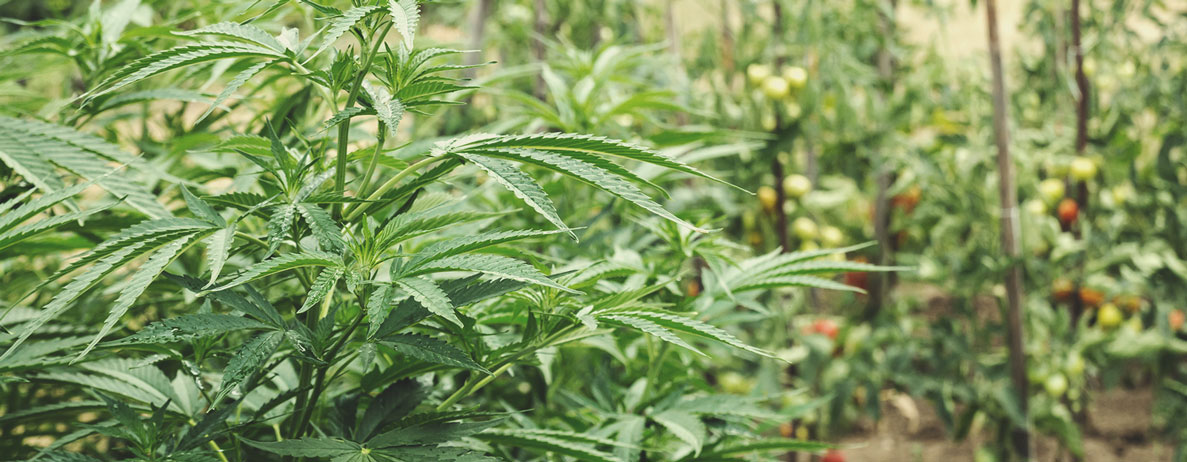
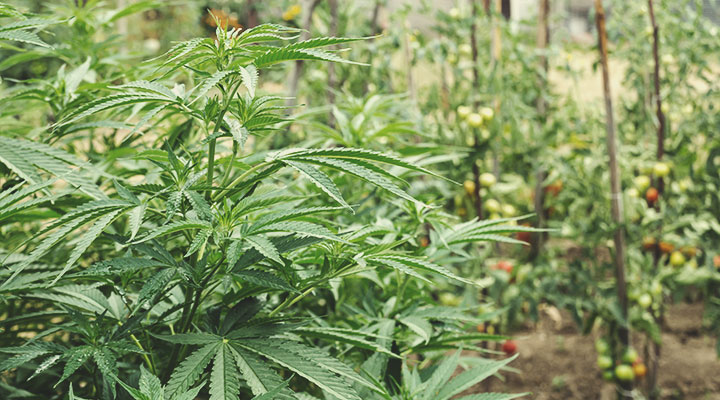
How To Start A Regenerative Cannabis Garden
Both the commercial grower and the home grower would do well to stop using fertilisers and wasteful watering practices. No one is innocent, we know that! But then again, we can minimise our garden’s impact on the Earth by adopting some of the following regenerative techniques:
- Minimise artificial light. Reduce the use of grow lamps and follow the sun's natural cycle. Set up energy-efficient greenhouses instead of grow boxes.
- Rainwater collection systems send water directly to the roots. Utilise drip irrigation to deliver water to precise locations and reduce the amount used.
- Crop rotation, companion planting, and biodiversity can help control pests and activate synergies. Only natural pesticides are allowed.
- Use no-till farming, on-site composting, and bokashi as primary sources of nutrients.
- Mulching and cover crops keep ecosystems alive during the off-season, suppressing bad weed growth, enriching the soil, preventing soil erosion or hardening, and providing habitats for beneficial organisms.
- Worm farming. Enrich the soil with vermiculture to establish a synergistic network of bacteria and other organisms. Farm animals also produce nutrient-rich manure.
That’s not all you can try. You can also read our articles on how to grow organic cannabis and how to make homemade compost. And, you can even create your own landraces! By working with cannabis plants in your unique regenerating environment, you can produce genetically unique strains native to their farms. Will these “regenerative genetics” be the top-shelf outdoor strains of the near future?
Can Regenerative Cannabis Farming Reverse Climate Change?
Even if the cannabis industry is just a small piece of the big agricultural cake, on a local scale, every grower can make small changes to reduce their impact on the environment.
Small steps towards a more sustainable cannabis economy have been taken here and there around the world. In California, a new prize was established to award cannabis growers applying regenerative agriculture techniques: the Regenerative Cannabis Farm Award. Even more important, people are starting to ask where their cannabis comes from, and how it’s grown.
More and more organic cannabis growers are entering the scene, while millions of people already grow their own cannabis at home in a sustainable way. The cannabis and hemp industry should adopt regenerative growing practices where possible, thus having a positive impact both on people and the environment. Leading by example, the cannabis industry can garner even more legitimacy for the plant.


























